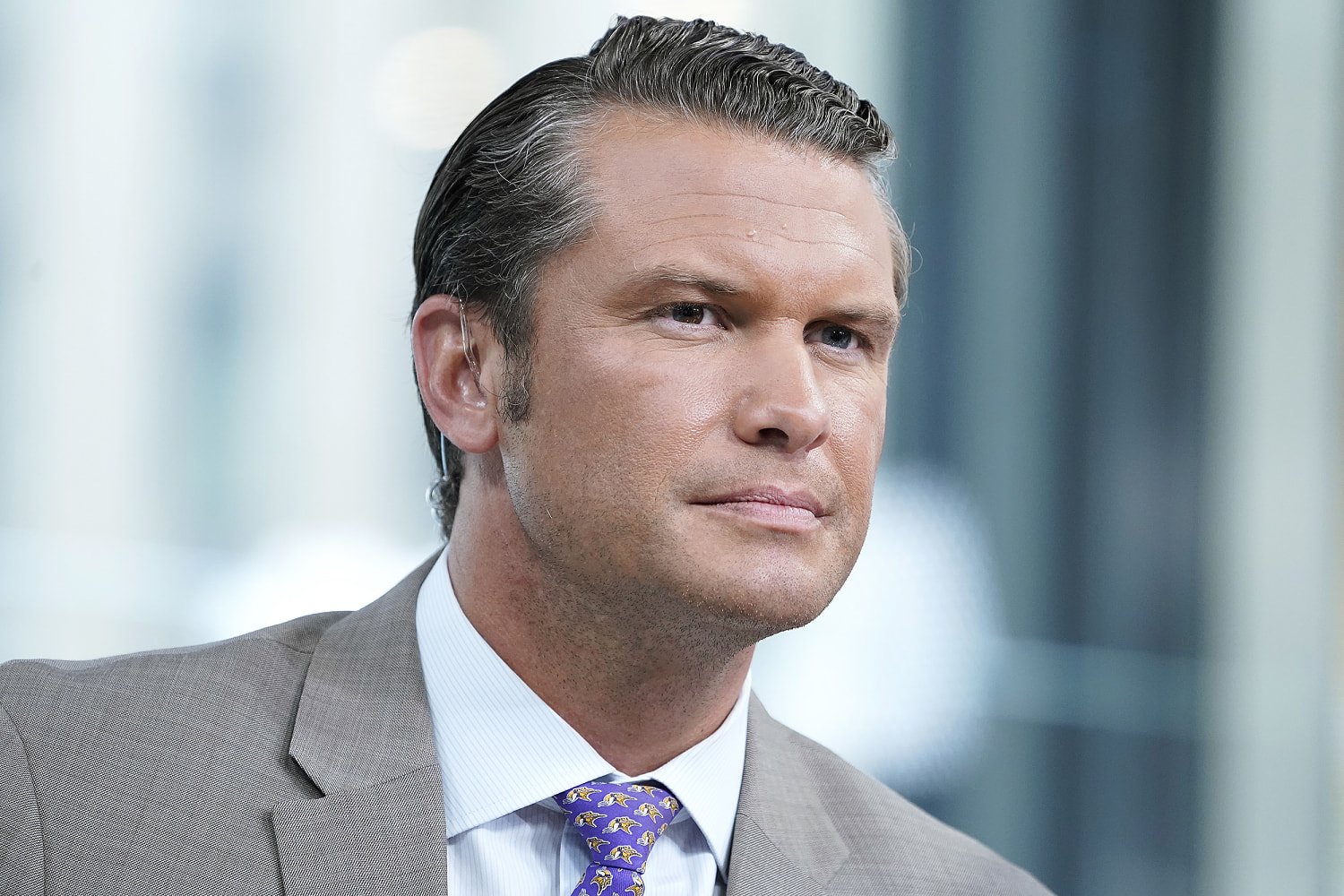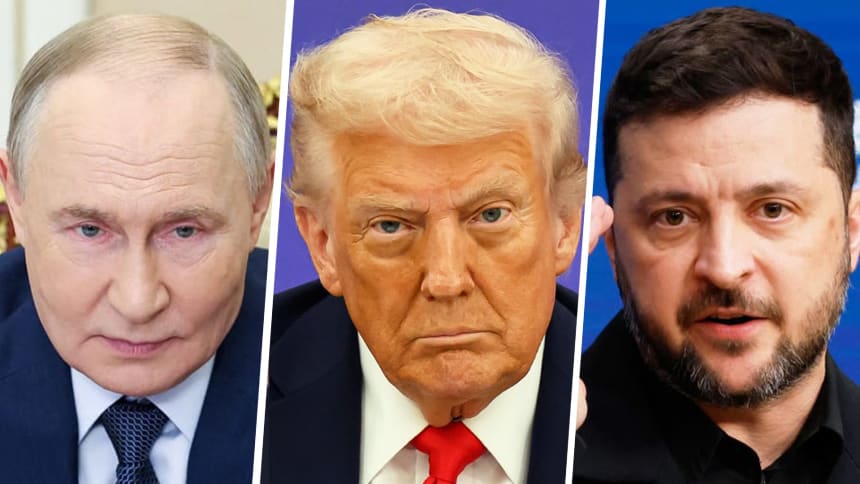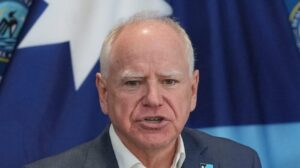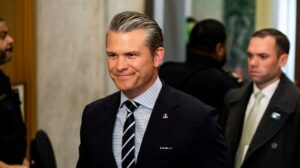The Dictatorship
What I learned after helping vet Pete Hegseth for the RNC in 2016

Some important things to know about Pete Hegseth, Donald Trump’s pick for secretary of defense: He claims he hasn’t washed his hands in a decadehe vowed to “send back” his Harvard master’s degree, and he has a gig as weekend on-air talent on Fox News.
Conservatives vying to win favor with MAGA world have already begun spinning this Trump Cabinet selection as a home-run pick. Trump’s communications director recently defended Hegseth after reports surfaced of a 2017 sexual assault allegation, insisting he is “extremely qualified” for the role. (Authorities cited a police report for “an alleged sexual assault;” Hegseth did not face charges, and his attorney denied the allegations, according to NBC News). But much like Hegseth’s handwashing claims, they are almost certainly lying to themselves and their audience about his qualification for a role in the administration, presumably to win favor with Trump and his cadre of sycophants.
Eight additional years spent at Fox News has not made him any more qualified to run the Department of Defense.
Upon a close review of Hegseth’s qualifications, I think he was likely chosen because he seems willing to say and do anything Trump wants, has expressed favorable views on war crimesand because Trump thinks he looks and sounds good on TV. Unfortunately, these Trump-friendly qualities also position him as perhaps one of the least qualified picks for secretary of defense we’ve seen.
I should know because in 2016, I vetted Hegseth while working at the Republican National Committee (RNC), when Trump’s team was considering him for under secretary roles at the Department of Defense and Department of Veterans Affairs.
According to my professional assessment at the time, Hegseth was unqualified for the more junior positions he was being considered for in 2016, and eight additional years spent at Fox News has not made him any more qualified to run the Department of Defense, an organization with 2 million employees, and one that regularly interacts with foreign military leaders and is critical to our national security and global standing.
My job at the RNC was that of a national senior opposition researcher. I created opposition research and vetting “books,” along with media plans and narratives on my issues — health care, foreign affairs, national security, and veterans affairs — for the day, week, and month ahead, and then implemented these plans and narratives through direct outreach to journalists or by providing the talking points to TV hosts or surrogates.
We worked seven days a week, regularly topping 100 hours, with our weekdays starting off on calls coordinating the RNC’s work with the Trump campaign’s daily agenda. The calls were interesting to say the least as they were led by Sean Spicer on the RNC side, and had a rotating cast of Trump campaign officials on the other end — ranging from the likes of Paul Manafort, who was convicted on five felony counts of tax fraud, and additional counts of failure to file a report of foreign bank and financial accounts and bank fraud, to Corey Lewandowski, accused in the past, among other things, of misdemeanor battery (Lewandoski denied the claim and authorities dropped the charges citing inadequate evidence) and sexual harassment (Lewandowski’s lawyer denied the claim and charges were dropped), and who always sounded like he had far too many red bulls (to put it kindly) in his system for an early morning call.
After the 2016 election, our work turned from manipulating the media into vetting Trump administration hopefuls.
Many people probably think that vetting a candidate for an administration entails private investigators and all types of “off the books” work. That is not the case. Instead, it requires scouring the public domain for available information, and then using it to craft a powerful story. If the researcher thinks someone is unqualified, they create a book as damaging as possiblelike this one I created on Rudy Giuliani when he was being considered for secretary of state. Politically speaking, Giuliani’s past work with a group formerly designated by the State Department as terrorists was bad, but he also worked with Purdue Pharma, who many blame for creating the opioid crisis, and helped secure a deal that helped avoid legal and regulatory scrutiny during the height of said crisis.
So, what did we find on Hegseth? Let’s start with the good. He has impressive academic credentials, a Princeton bachelor’s degree and a Harvard master’s degree, and is a decorated military veteran, having served as an officer and earned two Bronze Stars, among other commendations.
The other experience Hegseth does have … is not great, from the public office perspective especially. His foray into finance didn’t yield much of promise; he was an equity markets analyst for Bear Stearns from 2004-2006 preceding the firm’s infamous collapse as part of the 2008 Great Recession. Okay, I thought. Maybe money just isn’t his thing.
How about foreign policy?
Not Pete’s thing either — unless we count stints at two comically partisan think tanks focused on conservative social values and monetary policy (cutting taxes for billionaires) — Chris Rufo’s Manhattan Institute or the even more obscure Center of the American Experiment.
Surely Hegseth at least has experience running a massive organization, like that of which Rex Tillerson brought to the State Department? Nope — he was CEO of a small non-profit that has between 11-50 employees.
The potential new secretary of defense has no experience running a large organization, lacks foreign policy experience, and has never worked in a meaningful way with Congress to pass billions in military budgets.
To summarize, the potential new secretary of defense has no experience running a large organization, lacks foreign policy experience, and has never worked in a meaningful way with Congress to pass billions in military budgets.
But what Hegseth lacks in experience he makes up in dangerous partisan rhetoric, having worked at such venerated journalistic institutions as Glenn Beck’s “The Blaze,” and more recently, Fox News.
And that, I believe, is why Trump picked Hegseth. Because he represents an empty vessel that sounds and acts tough on TV. It’s not hard to imagine that he would do and say whatever Trump wants. And considering that known interventionist Marco Rubio will likely be the next secretary of state, and China hawk and former defense contractor Mike Waltz has been picked for national security advisor, it’s time to put to bed the notion that Trump is anti-interventionist, and prepare ourselves for the very real possibility of a new American conflict started by team Trump. Again, it’s somewhat easy to see why Trump may have picked Hegseth for the role; but none of it bodes well for the next four years.
Justin M. Higgins
Justin M. Higgins is a communications professional in Washington, D.C. He was previously a policy advisor to former House Freedom Caucus Member of Congress Rep. Tim Huelskamp, and a senior opposition researcher for the Republican National Convention during the 2016 presidential campaign. More recently Higgins has become a Democrat and politically appointed official for the governor of Puerto Rico. He cohosts the “Politics + Media 101″podcast and is a regular contributor to DW News.
The Dictatorship
Trump’s border czar says ‘small’ security force will remain in Minnesota after enforcement drawdown

WASHINGTON (AP) — White House border czar Tom Homan said Sunday that more than 1,000 immigration agents have left Minnesota’s Twin Cities area and hundreds more will depart in the days ahead as part of the Trump administration’s drawdown of its immigration enforcement surge.
A “small” security force will stay for a short period to protect remaining immigration agents and will respond “when our agents are out and they get surrounded by agitators and things got out of control,” Homan told CBS’ “Face the Nation.” He did not define “small.”
He also said agents will keep investigating fraud allegations as well as the anti-immigration enforcement protest that disrupted a service at a church service.
“We already removed well over 1,000 people, and as of Monday, Tuesday, we’ll remove several hundred more,” Homan said. “We’ll get back to the original footprint.”
Thousands of officers were sent to the Minneapolis and St. Paul area for U.S. Immigration and Customs Enforcement’s “Operation Metro Surge.” The Department of Homeland Security said it was its largest immigration enforcement operation ever and proved successful. But the crackdown came under increasing criticism as the situation grew more volatile and two U.S. citizens were killed.

People take part in an anti-ICE protest outside the Governors Residence in St. Paul, Minn., on Friday, Feb. 6, 2026. (AP Photo/Ryan Murphy)
People take part in an anti-ICE protest outside the Governors Residence in St. Paul, Minn., on Friday, Feb. 6, 2026. (AP Photo/Ryan Murphy)
Protests became common. A network of residents worked to help immigrants, warn of approaching agents or film immigration officers’ actions. The shooting deaths of Renee Good and Alex Pretti by federal officers drew condemnation and raised questions over officers’ conduct, prompting changes to the operation.
Homan announced last week that 700 federal officers would leave Minnesota immediately, but that still left more than 2,000 in the state. He said Thursday that a “significant drawdown” was already underway and would continue through this week.
Homan said enforcement would not stop in the Twin Cities and that mass deportations will continue across the country. Officers leaving Minnesota will report back to their stations or be assigned elsewhere.
When asked if future deployments could match the scale of the Twin Cities operation, Homan said “it depends on the situation.”
The Dictatorship
Rubio says ‘no reason’ to doubt Navalny was killed by dart frog poison
ByDavid Rohde
Secretary of State Marco Rubio says there is “no reason” to doubt a new report by five European nations that Russian opposition leader Alexei Navalny was killed in a Russian government prison with poison found in Latin American dart frogs.
A fatal toxin not found naturally in Russia — epibatidine — was “conclusively” discovered in samples of Navalny’s body by a joint investigation conducted by Germany, France, Britain, the Netherlands and Sweden, according to a joint statement by the nations on Saturday.
The toxin is only known to exist in poison dart frogs in Central and South America. One species, the phantasmal poison frog, contains a chemical that is 200 times more potent than morphine.
“It’s a troubling report,” Rubio told reporters at a news conference during a visit to Slovakia on Sunday. “We don’t have any reason to question it.”

It was not clear why the United States did not participate in the investigation of Navalny’s death. But the finding comes amid rising support in the Senate for a bill that would impose sweeping new sanctions against the government of Vladimir Putin, which has been opposed by the Trump administration.
Sen. Jeanne Shaheen, D-N.H., the top Democrat on the Senate Foreign Relations Committee, noted on the closing day of the Munich Security Conference, where Rubio received a standing ovationthat 84 out of 100 senators have signed on to co-sponsor the bill authored by Sen. Lindsey Graham, R-S.C.
“I don’t understand the reluctance to go after Vladimir Putin and what Russia is doing in Ukraine,” Shaheen told a group of reporters. “The failure by the United States to act has extended this war.”
Russian officials have repeatedly denied playing any role in the death of Navalny two years ago in a government-run penal colony in the Arctic. They called the new European report “a Western propaganda hoax,” according to Russia’s state news agency.

The report comes as U.S. envoy Steve Witkoff and Jared Kusher, President Donald Trump’s son-in-law, are expected to meet with both Russian and Iranian officials on Tuesday in Geneva. The goal of the Russia talks is to reach a peace settlement in Ukraine by a June deadline the administration has set. (Witkoff and Kushner are also set to join a second round of nuclear talks with Iranian officials in Geneva on the same day.)
Critics of Trump, who promised to end the war days after returning to office, say Russia has not been seriously negotiating and is simply playing for time so it can gain ground on the battlefield. Democrats have also expressed concerns over reports that Witkoff has been negotiating business deals during peace talks with Kirill Dmitriev, a former Wall Street banker who runs Russia’s sovereign wealth fund.
Last week, Ukrainian President Volodymyr Zelenskyy said that Dmitriev pitched $12 trillion in bilateral economic agreements with the U.S. It is unclear how such large deals could be achieved. The $12 trillion figure is about four times the size of Russia’s 2025 gross domestic product.
A European diplomat whose country has negotiated with Russia in the past told MS NOW that Moscow has repeatedly made such investment offers. But the business entities end up being largely Russian controlled. “They lure you in,” said the diplomat, who was granted anonymity to speak candidly.
Shaheen expressed skepticism as well.
“I’m concerned about all things Russian in this administration,” Shaheen said. “I’m not a conspiracy theorist. But I’m beginning to become one with respect to Putin and President Trump.”

David Rohde
David Rohde is the senior national security reporter for MS NOW. Previously he was the senior executive editor for national security and law for NBC News.
The Dictatorship
FBI links glove found near Nancy Guthrie’s home to suspect on video
A glove with DNA found near 84-year-old missing Nancy Guthrie’s home appears to match those worn by a masked person caught on surveillance footage, the FBI said Sunday.
“The FBI received preliminary results yesterday on 2/14 and are awaiting further testing,” the bureau said in a statement. “This process typically takes 24 hours from when the FBI receives DNA.”
The FBI said investigators collected “approximately 16 gloves in various areas near” Guthrie’s house in Tucson, Arizonawhere she was last seen on Jan. 31. Most of those gloves were “searchers’s gloves that they discarded in various areas when they searched the vicinity” but the glove with the “DNA profile recovered is different and appears to match the gloves of the subject in the surveillance video,” the FBI said.
“What we have is a lead here. The glove retrieved would need to have the victim’s DNA or some other forensic material to tie it to the home,” a law-enforcement source familiar with the investigation cautioned. “It must be connected to the home and victim. That would make the glove actual evidence, at this point it’s a lead. A good lead.”

The FBI said said the glove was found in a field approximately two miles from Guthrie’s house. The glove resembles the one on the hand of a person who was captured on porch camera video footage at the home of NBC “Today Show” host Savannah Guthrie’s mother the night she went missing.
The agency said it is awaiting quality control and official confirmation before putting the individual’s profile into the bureau’s national database, which could take up to 24 hours.
The FBI has described the man captured in photographs and on video as approximately 5’9”-5’10” with an average build. In addition to gloves, he was also seen wearing a ski mask and a black, 25-liter “Ozark Trail Hiker Pack” backpack. The agency on Thursday increased its reward for any information leading to an arrest and conviction of anyone involved in Guthrie’s disappearance to $100,000.
Guthrie was reported missing by her family on Feb. 1. Sheriff’s deputies also found blood on the front porch that was later confirmed to belong to the network host’s mother. Guthrie’s children, including Savannah, have posted several videos pleading for their mother’s release, agreeing to pay any ransom demanded and asking for help from the public.
Alex Tabet, Marc Santia and Ken Dilanian contributed to this report.
Erum Salam is a breaking news reporter and producer for MS NOW. She previously was a breaking news reporter for The Guardian.
-

 The Dictatorship1 year ago
The Dictatorship1 year agoLuigi Mangione acknowledges public support in first official statement since arrest
-

 Politics12 months ago
Politics12 months agoFormer ‘Squad’ members launching ‘Bowman and Bush’ YouTube show
-

 The Dictatorship5 months ago
The Dictatorship5 months agoMike Johnson sums up the GOP’s arrogant position on military occupation with two words
-

 Politics12 months ago
Politics12 months agoBlue Light News’s Editorial Director Ryan Hutchins speaks at Blue Light News’s 2025 Governors Summit
-

 Politics12 months ago
Politics12 months agoFormer Kentucky AG Daniel Cameron launches Senate bid
-

 The Dictatorship1 year ago
The Dictatorship1 year agoPete Hegseth’s tenure at the Pentagon goes from bad to worse
-
Uncategorized1 year ago
Bob Good to step down as Freedom Caucus chair this week
-

 Politics10 months ago
Politics10 months agoDemocrat challenging Joni Ernst: I want to ‘tear down’ party, ‘build it back up’





